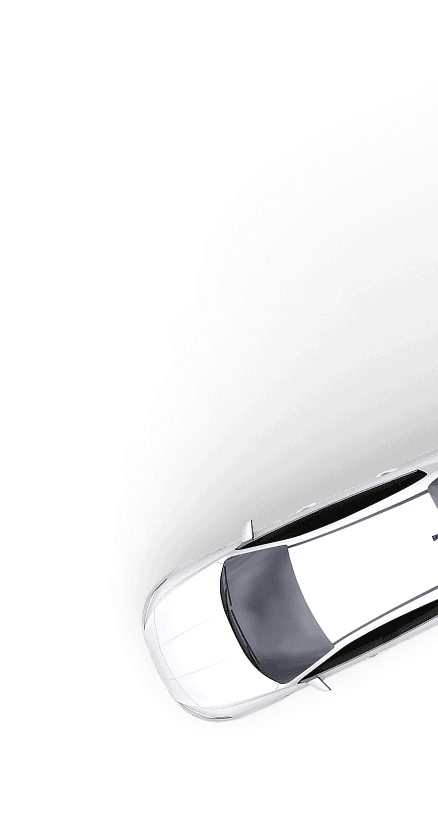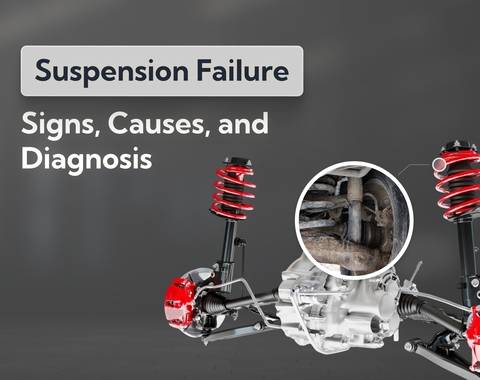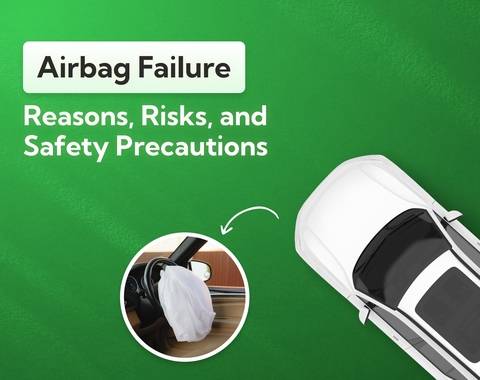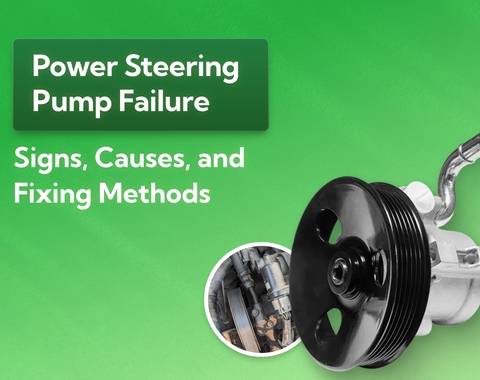Selling a Modified Car in 2025: The Complete Guide
Selling a modified car in the UK isn’t as simple as listing and waiting. Every upgrade changes how buyers see it and how much they’ll pay. This guide walks you through valuing, preparing and legally selling a modified car in the UK with practical advice on trade-ins, private sales, online listings and scrap options.
Last updated: 23rd October, 2025

Anthony Sharkey is COO at New Reg Limited (Car.co.uk, Trader.co.uk, Garage.co.uk), driving innovation in vehicle recycling, logistics, and customer experience.
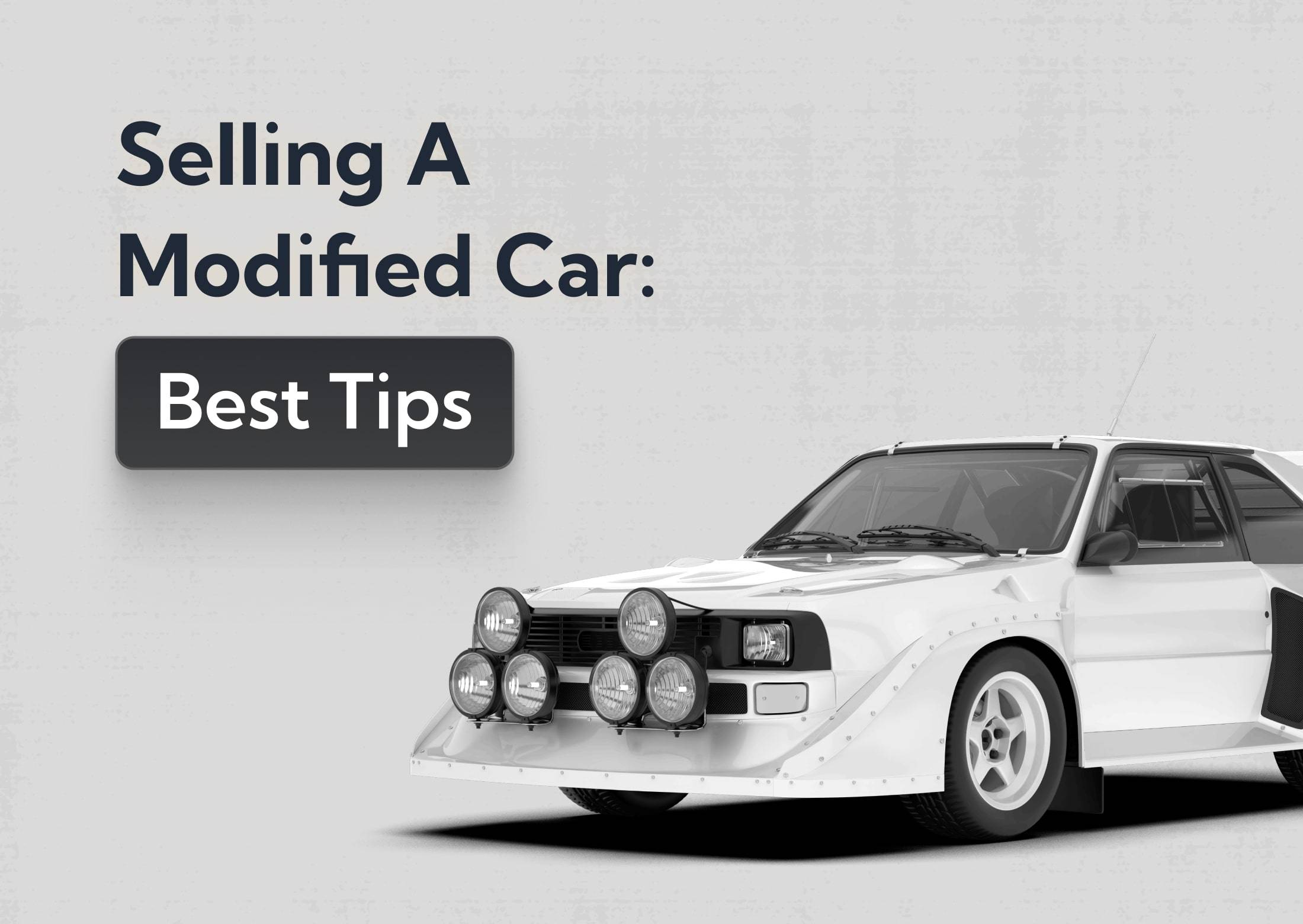
Listen to this story
Modified cars divide opinion. Some people see passion and personality. Others see problems.
A “modified” car just means it’s been changed from factory spec. New exhaust, lowered suspension, remap, body kit, you name it. The catch is, those changes can raise or ruin the resale value. A tasteful upgrade attracts enthusiasts and premium buyers. A loud or poorly fitted mod sends everyone else running.
That’s why selling a modified car is tricky. I’ve seen it open doors but more often than not, it closes them fast. Especially if we’re talking trade-in value and not private sale value.
In this guide, we’ll cover how to value your car, what to disclose legally, where to sell it and how to protect yourself from bad offers and scams.
What's in this article
What counts as a car modification?
A car modification is any change that alters the way your vehicle looks, sounds, or performs from how it left the factory. It doesn’t have to be dramatic; even a small tweak counts. If it’s not part of the original manufacturer’s setup, it’s a modification.
Most upgrades fall into one of three categories:
- Cosmetic changes: Things that change your car’s appearance, like alloys, body kits, tinted windows, resprays and custom interiors.
- Performance upgrades: modifications that improve its speed, sound or handling, like remaps, exhaust systems, turbochargers, spoilers and suspension kits.
- Functional modifications: Additions that make the car more practical or tech-savvy, such as upgraded lighting, reversing cameras or an improved infotainment system.
All three influence resale value, sometimes in your favour, sometimes not. A subtle remap might add appeal to someone who wants better fuel efficiency and engine response. A neon wrap or slammed suspension will shrink your buyer pool instantly.
Let’s look at the most common mods and what they entail for your car’s resale value.
Installing a sunroof
You probably already know what a sunroof is. It’s the glass panel that tilts or slides open to let in light and air through the roof. It feels premium, adds a bit of theatre to the cabin and makes every drive feel more open. Buyers love that kind of experience… when it’s factory fitted.
Aftermarket sunroofs, though? Different story. They practically never integrate as neatly as the ones installed on the production line. The seals aren’t the same quality and even small gaps lead to leaks, wind noise and electrical issues.
And installing one isn’t cheap. A proper aftermarket job runs anywhere from £250 to £1,600+. Not only will you never see that money back, but most buyers see it as a risk rather than a perk because once the factory roof is cut, the car’s never truly the same again.
Upgrading to aftermarket wheels
Swapping your stock wheels for a set of aftermarket alloys is one of the most common mods out there. It’s quick, visual and gives your car a totally different stance that’s sharper, sportier and more personal. Larger wheels make the car look tougher, while lightweight alloys actually improve cornering and grip.
But let’s be honest. This is a modification you do for you. If you love how it looks and drives, that’s the reward. In resale terms, aftermarket wheels cost £500 to £1,000 and rarely move the needle because the average buyer just doesn’t care.
Installing a performance exhaust system
A performance exhaust changes the sound, the feel and the way your car announces itself before it arrives.
As a car lover, that deeper tone and sharper throttle response is addictive. But to the average buyer? It tells them you like to drive it hard, which is a net negative in most situations.
If the system’s subtle and professionally fitted, it might not affect the value at all. But once it’s even the least bit obnoxious, most average buyers will absolutely hate it.
Adding a body kit or spoilers
Done properly, body kits and spoilers sharpen your car’s look, improve aerodynamics and make it stand out for all the right reasons. Done badly, they scream “cheap mod” and turn buyers away before they’ve even looked under the bonnet.
If you’re driving something that’s already performance-oriented like an M3, WRX or RS, a premium-quality kit using durable materials like OEM plastic and carbon fibre can genuinely add value. Anything else will hurt your car’s resale.
Upgrading the suspension system
Suspension upgrades cover a range of mods:
- Lowering springs
- Coilovers
- Lift kits
- Stiffer sway bars
- Performance shocks and struts
- And even full adjustable setups that let you fine-tune ride height and handling
These changes transform how a car feels on the road: sharper cornering, tighter grip, and a sportier stance overall.
But for everyday buyers, modified suspension usually decreases resale value. Most people see it as a comfort downgrade or a sign the car’s been pushed hard. If it’s high-quality, well-installed and has broad appeal with that specific car, a few buyers might be willing to pay more, though.
Tinted windows
Tinted windows sit in that rare sweet spot of car modifications. They look good, feel good and don’t really mess with resale value either way. A light, legal tint keeps the cabin cooler in summer and warmer in winter, and adds that subtle layer of privacy everyone likes.
But anything beyond the legal limit (75% VLT on the windscreen and 70% VLT on the front side windows) will fail an MOT and instantly put buyers off. No one wants to inherit a car they’ll have to strip before it can pass inspection.
Things to know before modifying your car
Of course, you’ve already thought about how modifications change the way your car looks, feels and drives. But have you thought about what it’ll cost to run, insure and maintain? Most drivers don’t. They just impulse buy
There are five things you’ll definitely want to consider before making changes: car insurance, warranties/servicing, road tax, ongoing maintenance and, of course, resale value.
- Impact of modifications on insurance: You have to declare every modification to your insurer. Insurers see mods as higher risk (more likely to be stolen, driven hard or expensive to repair). So even small ones like tinted windows and alloy changes alter your premium. Failing to declare them can void your cover entirely.
- Effect on warranty and servicing: Any modification that alters performance or interferes with factory systems will generally void the warranty on related components. Dealers might also refuse warranty repairs if they suspect a mod caused the issue, and and routine servicing if the mod makes it more difficult.
- Understanding modifications and car tax: You have to report major powertrain changes like engine swaps and emission-altering mods must be reported to the DVLA using a "Modified vehicle statement" (Form V627/3). If the mod changes your car’s CO₂ emissions, engine size or fuel type, it’ll also affect your Vehicle Excise Duty.
- Maintenance costs of modified cars: Modified cars cost more to maintain. Performance parts wear faster, specialist servicing is pricier and custom work means fewer off-the-shelf replacements.
- The impact of modifications on car resale value: Finally, remember most mods add personal value, not broad value. Tasteful, high-quality upgrades might appeal to the right buyer but most will either have a neutral or net negative effect. Always think long-term. Will the next owner want what you want?
How do modifications affect the value of a car?
If you’re trading in your car, the answer’s simple: mods don’t help. And more often than not, they hurt. Dealers want stock cars they can move quickly, and aftermarket parts just complicate that.
Private sales are different. The right buyer might love what you’ve done, but it depends on several factors:
- Type of modification: Solid performance upgrades add appeal; cosmetic tweaks go either way; functional mods usually have a neutral impact. On top of that, extreme or irreversible modifications will tank the car’s resale value.
- Car make and model: Popular performance cars like a BMW M3 or Audi RS7 benefit more from mods than family hatchbacks and SUVs.
- Quality of the modifications: Professional, well-documented work with OEM and carbon fibre parts adds confidence. Cheap, rough installs destroy it completely.
- Age and condition of the car: A newer car in great shape will gain value from modifications more often. An older one rarely will.
- Buyer preferences: If you’re able to attract lots of enthusiasts, they might be willing to pay extra for your setup. Average buyers almost never care.
- Market demand for modified cars: Strong enthusiast markets like BMW M, VW GTI and Subaru have large modding communities, so they support higher resale prices.
How much are modified cars worth?
Valuing a modified car is an inexact science. It’s more about reading the market than following a formula.
Start by checking listings for similar cars with comparable mods on sites like Autotrader, PistonHeads and eBay Motors. Notice which ones actually sell, not just what they’re listed for. Then, factor in buyer demand for your make and model. Cars with strong enthusiast followings hold mod value better.
Of course, be realistic about your specific upgrades: quality parts and professional installs add credibility but personal touches (like wraps and extreme styling) rarely, if ever, translate into higher offers.
I’ve prepared a quick cheat sheet you can use to determine whether a specific modification will increase or decrease your car’s value.
| Factor | Increases value when... | Decreases value when... |
|---|---|---|
| Type of modification | Subtle, performance-oriented and practical (e.g. suspension, intake, mild remap) | Overly loud, extreme or purely cosmetic (e.g. huge spoilers, loud exhausts) |
| Vehicle make and model | Popular enthusiast models like VW GTI, BMW M, or Subaru WRX | Everyday cars where mods seem out of place (e.g. basic hatchbacks and family saloons) and high-end vehicles cars where buyers prioritize originality (e.g., Porsche) |
| Quality of work | Professionally installed, branded parts, full documentation | DIY jobs, cheap materials, poor fitment |
| Condition of the car | Well-maintained, low mileage, clean MOT history | High mileage, rough condition, signs of neglect or abuse |
| Legality and compliance | Fully road-legal, insured, and declared | Illegal tints, emissions deletes, undeclared mods |
| Buyer type | Enthusiasts familiar with the brand or mod scene | General buyers wanting reliability and simplicity |
| Market demand | Strong local or online community for the make/model | Niche or unpopular car markets with limited interest |
| Documentation | Receipts, service history, before-and-after photos | Missing invoices, no proof of parts or fitting work |
What the experts say

Steven Jackson OBE
How to sell a modified car in the UK?
When it comes to selling a modified car, you’ve got three main routes: private sale, dealership trade-in and online car-selling platforms, like Car.co.uk. Each comes with its own pros and cons, depending on the type of mods you’ve done and the kind of buyer you’re targeting.
The key is matching your car to the right audience. Some buyers love modifications but most see them as trouble. Factors like the type of modification, vehicle make and model, documentation and how extreme the changes are all play a role in deciding where to sell.
Selling a modified car privately
Selling privately gives you the best shot at finding a buyer who actually appreciates what you’ve done to the car. Enthusiasts scroll through listings all the time looking for exactly the kind of upgrades you’ve made. They know the value of quality mods and may even pay more for them.
List your car on classified sites like Autotrader, social platforms like Facebook Marketplace and enthusiast forums like PistonHeads. These are the places where modified cars actually get attention.
Be honest and detailed in your listing. Include clear photos of the interior, exterior, engine bay and under the bonnet and describe each modification with brand names, installation dates, and receipts. If the modifications are performance enhancing, also include the updated specs.
Selling a modified car to a dealership
Modifications, especially aesthetic or unprofessional ones, lower resale value because the dealer has to undo or replace them to make the car stock again. Minor tweaks will be accepted, but if the mods are extreme, complex or irreversible, most dealers will simply refuse the car.
The exception is if your upgrades are OEM parts or dealer-backed performance extras. Things like factory tuning packs, branded alloys and manufacturer-approved suspension kits can actually help.
If you’re negotiating, keep it simple. Bring documentation, highlight factory or professional work and be realistic. The dealer’s thinking about resale, not your passion, so expect trade-in offers to lean conservative.
Selling a modified car on online platforms
Online car-selling platforms like Car.co.uk or even Carwow and Motors.co.uk make it easy to reach a wide audience fast. You’ll get massive reach and (in most cases) built-in buyer protections that make it easier to sell your car safely.
The downside? Competition’s heavy, fees can apply and platforms like Facebook Marketplace are a free-for-all.
Just like selling privately, the key is presentation. Treat your listing like a story, not just a spec sheet. Use clear, well-lit photos, list every modification with brand names and receipts and be upfront about why you added the modifications. Transparency sells.
What are the steps to sell your modified car?
Selling a modified car takes more prep than selling a standard one. You need to show buyers that every change was intentional, well-done and properly documented.
There are five steps to follow:
- Gather and organise your paperwork: To sell any car, there are a few documents everyone needs in a physical or digital folder: the V5C logbook, complete service history and MOT certificates. For a modified car, you’re also going to need receipts for parts and professional installation and proof you’ve declared every modification to the insurer.
- Clean and present your modified car. Give it a full detail inside and out. Highlight the standout mods (wheels, engine bay, paintwork) so buyers can actually see the value you’ve added.
- Document your modifications. Keep a list of every upgrade with receipts, install dates, and any warranty info. Note when and where each was installed and present it clearly so buyers can review it easily.
- Be transparent about the modifications. Disclose everything, even the small tweaks. Full honesty prevents issues later and makes buyers more confident in you as a seller.
- Set a realistic price. Check market trends and similar listings. If you know they’re value-added modifications, set a conservative price increase vs the standard. If not, lower the price by what it’d cost to revert to stock.
- Know your buyer. Enthusiasts, collectors, and general drivers all see mods differently. Tailor your pitch by highlighting performance for enthusiasts and reliability for casual buyers.
As a pro tip, I’d normally recommend taking your mods off the car and putting the stock parts back on before selling. That way, you can get the resale value of the parts individually and sell the car as-is.
It’s a win-win: You get the same (or more) resale value out of the car, plus whatever you’re able to sell the additional parts for.
What counts as illegal modification in the UK?
UK law won’t let you modify your car with anything that affects safety, emissions or visibility. Those rules exist to make sure modified cars remain roadworthy and safe for everyone on the road.
Common illegal modifications include overly dark window tints, blinding headlight conversions, loud exhausts and structural changes that weaken the body of the car. These are MOT failures, but they’ll also result in fines, penalty points and possibly your car being declared unroadworthy by the DVSA or police.
- Modifications to windscreens and windows: The front windscreen must let at least 75% of light through, and the front side windows at least 70%. Anything darker is illegal because it affects driver visibility, especially at night. Rear windows can be as dark as you want.
- Modifying headlights and bulbs: UK law requires that all headlights produce white or yellow light and are correctly aligned. Blue, purple or coloured headlights are illegal. So are overly bright bulbs and aftermarket HID/LED kits that don’t comply with ECE regulations.
- Exhaust and engine modifications: Any exhaust that’s louder than the factory system or emits excessive fumes will fail an MOT and attract on-the-spot fines. Straight pipes, decats and DPF removals are all illegal on road-going cars. Engine tuning is legal unless it makes your car exceed Euro emissions standards or disables emissions equipment.
- Body modifications and legal restrictions: Sharp edges, oversized bumpers or poorly fitted body kits that could injure pedestrians are prohibited. Anything that compromises crash safety, visibility or steering/suspension geometry will fail an MOT. If you’ve made major structural changes (like chassis cutting, roll cages or conversions), you might need to have the vehicle retested and re-registered with the DVLA under the Individual Vehicle Approval (IVA) scheme.
About Car.co.uk

Frequently asked questions
Returning the car to its stock condition usually increases value, particularly for trade-ins and the majority of general buyers who prefer factory setups. Of course, that’s assuming the mechanic's work is solid.
Absolutely. Full transparency protects you legally and builds trust with potential buyers. If you try to hide modifications, even minor ones, it’ll lead to a lack of trust and a cancelled sale when most buyers inevitably find out. And if the modification causes a safety issue or the buyer feels they were scammed, you could find yourself in serious legal trouble for it.
Difficulty ranges from ‘kind of’ to ‘very’. It depends on the car and the mods. Performance models with quality upgrades attract enthusiasts quickly, but extreme and niche builds take forever to move.
Which selling platforms you use matters too. Specialist forums and enthusiast groups are your best bet for reaching the crowd who’s most interested in those kinds of cars.
Any modification that alters your car’s emissions, lighting, noise levels or safety systems can trigger an MOT failure if it doesn’t meet UK standards. Things like decatted exhausts, illegal tints, HID conversions and suspension changes are all things we see quite often.
Before booking your MOT, we recommend making sure all mods are road-legal, properly installed and compliant with DVSA regulations. Otherwise, you’ll be paying for repairs or reversals before your car can legally get back on the road.
Yes. We buy modified cars every day, all around the UK. Whether it’s performance parts, body kits, or custom exhausts, we’ll take it as-is.
Start by getting an instant scrap car quote. It’s free and takes 30 seconds. We’ll collect your car for free the same day or the next day, pay you on the spot and handle all the DVLA paperwork.
Doing it this way saves you all the headache of trying to sell a heavily modified car privately, especially if it already has high mileage or is more than 15 years old.
Share on
Latest news & blogs


